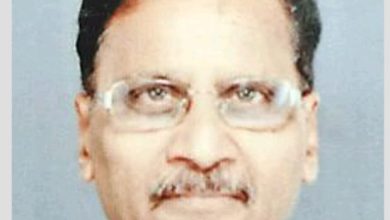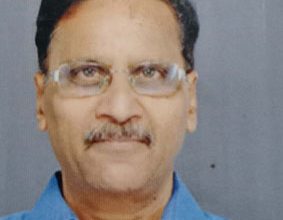Exploring the Complex Reality of Aging: Boon or Curse?

Yash Pal Ralhan
The global population is undergoing a significant transformation, with a substantial portion aging, and India is no exception to this trend. According to the United Nations Population Fund’s India Ageing Report 2023, the population above 60 years is poised to double, growing from 10.5% (approximately 14.9 crore individuals) as of July 1, 2022, to a staggering 20.8% (about 34.7 crore) by 2050. This seismic shift, where one in every five individuals will be a senior citizen, carries profound implications for health, the economy, and society at large.
In states like Kerala and West Bengal, a noticeable trend emerges as an increasing number of elderly citizens find themselves living in solitude, separated from their children who have migrated in pursuit of better opportunities. This phenomenon is not unique to India but reflects a global pattern characterized by longer life expectancies, facilitated by advancements in disease management, and declining fertility rates.
Within this overarching demographic transformation, several critical insights emerge. Notably, there is a gender disparity among elderly citizens, with women outnumbering their male counterparts. At the age of 60, an individual in India can anticipate an additional 18.3 years of life, with women experiencing a slightly longer life expectancy of 19 years compared to men’s 17.5 years. This seemingly positive aspect also carries the potential for challenges, especially for women in India, where labor force participation remains low at a mere 24%.
The pressing concern is that without adequate economic and social security, elderly women in India may find themselves increasingly vulnerable in their twilight years.
Recognizing the significance of this demographic shift, the Ministry of Social Justice and Empowerment in the Government of India underscores the importance of ensuring that the elderly population has access to the care and support necessary for them to lead healthy, dignified, and fulfilling lives. As Secretary, Ministry of Social Justice and Empowerment emphasizes.
The report’s key findings span a range of issues related to elderly well-being, including:
Enhanced Geriatric Care: The aging population necessitates the development of specialized healthcare services to cater to the unique medical needs of seniors.
Government Initiatives: Several government schemes and policies have been initiated to address the health, financial empowerment, and capacity-building needs of the elderly.
Digital Empowerment: Community-based organizations are actively engaging the elderly in digital empowerment through computer and internet usage sessions.
Policy Development: Ministerial committees are dedicated to shaping policies aimed at enhancing elderly welfare.
Corporate Social Responsibility: Companies are actively participating in initiatives for joyful aging, social assistance, the development of old age homes, and awareness campaigns against elder abuse.
While increased life expectancy is undoubtedly a testament to improved healthcare and living conditions, it comes with its set of challenges. One of the most pressing concerns is the rise in degenerative and mental health problems. Neurological diseases, often associated with old age, can have a profound impact on seniors’ quality of life. Alzheimer’s disease, in particular, poses significant challenges, with no known cure or prevention. It is a syndrome that affects memory, thinking, behavior, and the ability to perform everyday activities. As the disease progresses, individuals often become dependent on others, leading to a loss of dignity and independence.
Dementia, including Alzheimer’s, is not only a challenge for those directly affected but also their families. With nearly 90% of cases in India remaining unidentified, there is an urgent need for awareness and action. Dementia, often resulting from a combination of brain illnesses, has a profound impact on individuals and their families. Preventive measures and comprehensive care are essential in addressing this issue.
One aspect that exacerbates the challenges of aging in India is the changing family structure. As the joint family system weakens due to migration for employment and livelihood opportunities, a growing number of elderly individuals find themselves living alone or with only their spouse. Rural areas, which house over 80% of the elderly population, are particularly affected. This situation becomes even more complicated when one of the elderly spouses suffers from dementia. Providing adequate care and support in such scenarios becomes a significant challenge.
To address these issues effectively, a multi-pronged approach is needed. Increased medical attention, especially homecare services, is essential for elderly individuals living alone. Socio-economic support for low-income elderly individuals is crucial to ensure they receive the necessary care. Moreover, insurance companies need to be more accommodating toward senior citizens, as their needs are often overlooked.
In conclusion, whether old age is a boon or curse largely depends on the facilities and support available to senior citizens. As India’s elderly population continues to grow, it is imperative that the nation invests in geriatric care, healthcare, and social security measures that enable older individuals to lead dignified lives. A society that values and cares for its senior citizens will undoubtedly turn the challenges of an aging population into an opportunity for intergenerational harmony and well-being.
(The views and opinions expressed in this article are those of the author and do not necessarily reflect the official policy or position of the newspaper.)






